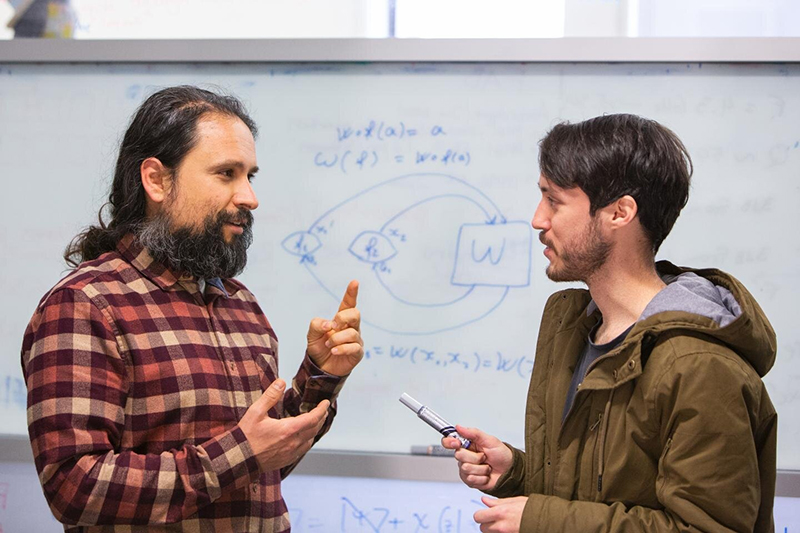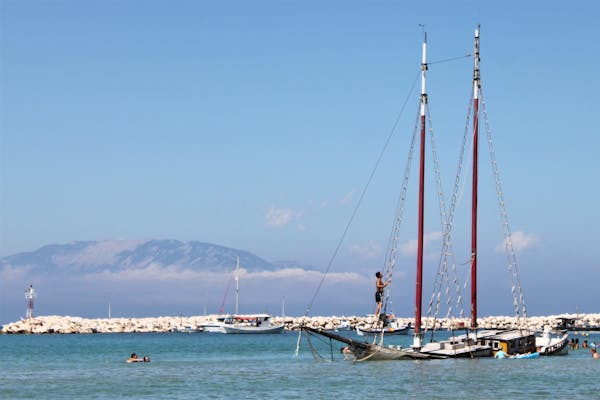A Physicist Has Occur Up With Math That Would make ‘Paradox-Free’ Time Travel Plausible
No one particular has but managed to journey by way of time – at minimum to our understanding – but the question of irrespective of whether or not such a feat would be theoretically feasible continues to fascinate experts.
As videos this kind of as The Terminator, Donnie Darko, Back to the Long run and quite a few other people clearly show, transferring around in time creates a great deal of complications for the essential policies of the Universe: if you go back again in time and end your mothers and fathers from assembly, for occasion, how can you potentially exist in purchase to go back in time in the very first place?
It’s a monumental head-scratcher recognised as the ‘grandfather paradox’, but now a physics pupil Germain Tobar, from the University of Queensland in Australia, claims he has labored out how to “square the numbers” to make time vacation viable without the paradoxes.
“Classical dynamics claims if you know the point out of a technique at a distinct time, this can explain to us the entire heritage of the program,” suggests Tobar.
“Nevertheless, Einstein’s idea of basic relativity predicts the existence of time loops or time vacation – exactly where an event can be the two in the past and upcoming of by itself – theoretically turning the analyze of dynamics on its head.”
What the calculations exhibit is that space-time can likely adapt alone to prevent paradoxes.
To use a topical instance, picture a time traveller journeying into the earlier to halt a sickness from spreading – if the mission was thriving, the time traveller would have no sickness to go again in time to defeat.
Tobar’s operate implies that the illness would nonetheless escape some other way, by way of a various route or by a unique method, removing the paradox. Whichever the time traveller did, the condition would not be stopped.
Tobar’s work is not simple for non-mathematicians to dig into, but it seems to be at the affect of deterministic procedures (with out any randomness) on an arbitrary range of locations in the space-time continuum, and demonstrates how both equally shut timelike curves (as predicted by Einstein) can fit in with the guidelines of cost-free will and classical physics.
“The maths checks out – and the final results are the stuff of science fiction,” states physicist Fabio Costa from the University of Queensland, who supervised the study.
 Fabio Costa (left) and Germain Tobar (ideal). (Ho Vu)
Fabio Costa (left) and Germain Tobar (ideal). (Ho Vu)
The new research smooths out the dilemma with another hypothesis, that time travel is doable but that time travellers would be limited in what they did, to stop them making a paradox. In this product, time travellers have the freedom to do whichever they want, but paradoxes are not attainable.
Whilst the numbers might function out, actually bending house and time to get into the previous stays elusive – the time machines that experts have devised so considerably are so significant-concept that for they currently only exist as calculations on a site.
We may possibly get there 1 day – Stephen Hawking undoubtedly believed it was possible – and if we do then this new analysis indicates we would be free to do regardless of what we preferred to the world in the past: it would readjust by itself appropriately.
“Try as you may to develop a paradox, the events will usually regulate on their own, to prevent any inconsistency,” states Costa. “The variety of mathematical procedures we found out demonstrate that time vacation with no cost will is logically possible in our universe without the need of any paradox.”
The analysis has been revealed in Classical and Quantum Gravity.






